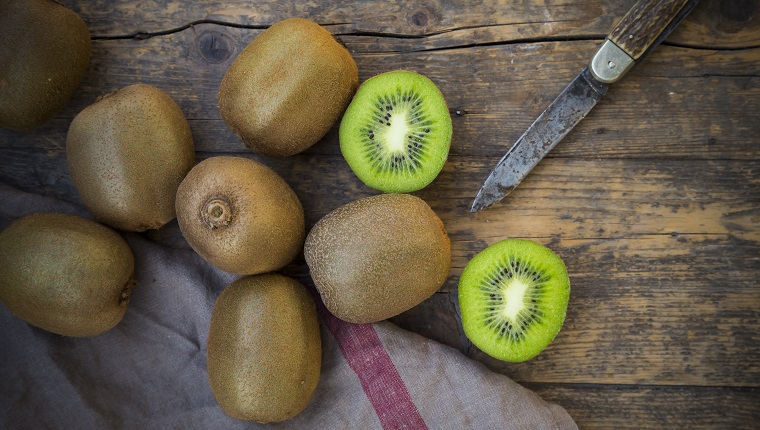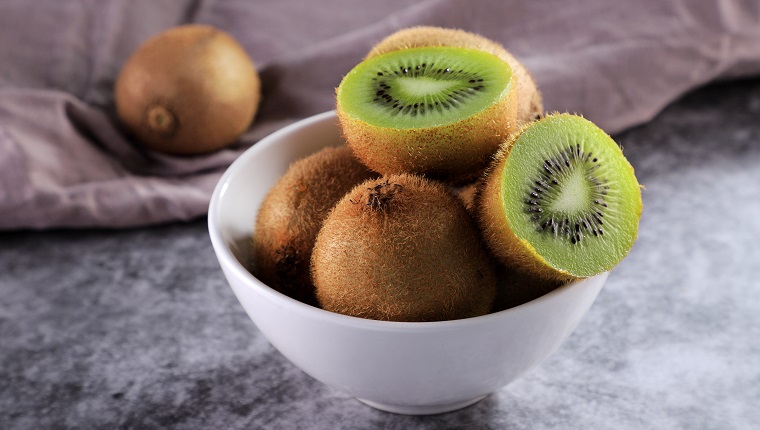Kiwi is a little miracle fruit and so pretty! We love them, so it stands to reason that our pups might love them. But can dogs eat kiwi? Is this something we can enjoy alongside our furry friends?
Fortunately, the short answer is yes; these fruits are absolutely wonderful, tasty, and nutritious for dogs. While there is a bit of preparation involved, it isn’t anything you wouldn’t normally do with a kiwi. And that bit of preparation is well-worth the nutrient benefit.
As always, though, you must discuss with your vet before allowing anything new into your dog’s diet. This is especially important if your dog is diabetic. Fruits like kiwi are sugary, even if they are healthy and nutritious. One quick phone call with your vet should set your mind at ease.
How Is Kiwi Safe For Dogs?
Kiwi is readily available all year and packs a nutrient punch, most notably with Vitamin C and potassium. While dogs do produce their own Vitamin C, a boost doesn’t hurt, and potassium can aid in chronic hypertension.
Furthermore, kiwi contains lutein, beta carotene, fiber, and calcium. Lutein is a nutrient compound that supports the eye health of your dog, and beta carotene is a potent antioxidant.
One of the wonderful things about kiwi is there really isn’t anything toxic about it. The rough skin on the exterior is edible but does cause intestinal issues, so it should always be removed. Not having to worry about trace toxins, though, is a huge plus.
The seeds, also, would need to be ingested in massive quantities to cause harm, much like those of the dragon fruit.
Plus, you can have fun serving your dog kiwi! You can chop it up into pieces to put in a Kong toy, or even freeze it into little popsicles for the hot summer days.
How Can I Safely Give Kiwi To My Dog?

As with all fruits given to dogs, moderation must be adhered to. Fruits like kiwi are high in sugar content and, therefore, must only be an occasional treat, not a dietary staple.
When serving kiwi to your dog, just a few chopped-up pieces is more than enough. Upon the first introduction, keep it to just a piece, or two. Then, monitor your dog for a few days to see how they respond to it and check for allergic reactions. Your vet will likely advise the same.
Prior to serving, always give the kiwi a thorough wash to remove any pesticides. Then, remove the skin altogether and chop the kiwi into chunks.
Never give kiwi to your dog whole, especially if you have a larger dog. They can swallow it whole, and it can become a choking hazard.
Sometimes the seeds do affect dogs with sensitive stomachs, regardless of their general safety. Fortunately, scooping out the seeds is quick and easy. Discuss this with your veterinarian to decide the best practice for serving kiwi to your dog.
Have you tried serving your dog kiwi? Does your pooch enjoy this sweet fruit? Let us know in the comments below.










